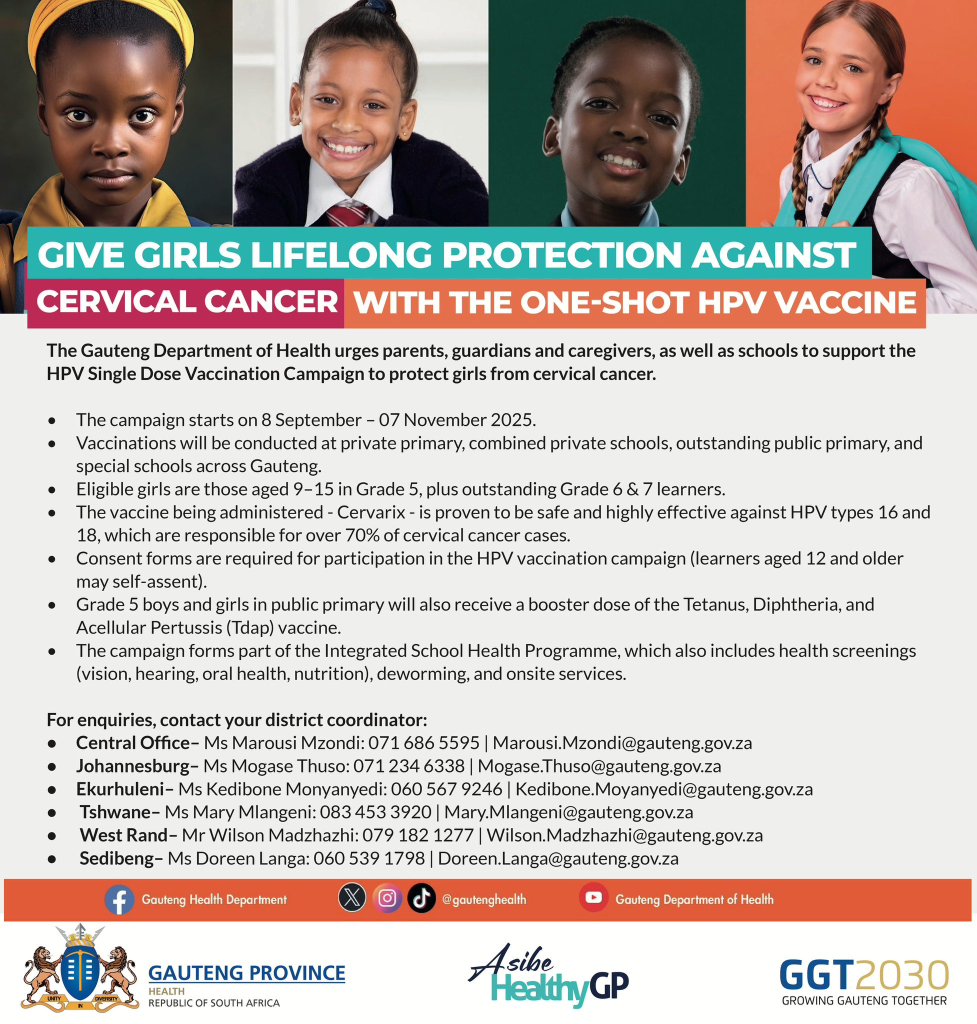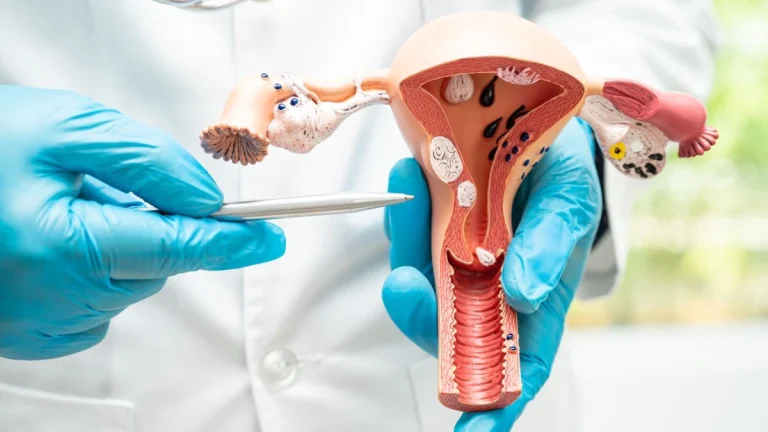Cervical cancer remains a major health challenge in South Africa, ranking as the second most common cancer among women and accounting for thousands of new cases and deaths yearly. Most cervical cancer cases are caused by persistent infection with the Human Papillomavirus (HPV), a common sexually transmitted virus. Recent advances in HPV vaccination offer powerful hope in changing this trajectory.
Thank you for reading this post, don't forget to subscribe!The HPV vaccine, traditionally given in multiple doses, now has proven effectiveness with just a single dose, making it easier to deliver and access for young girls. Gauteng’s Department of Health is leading a robust school-based vaccination campaign aligned with national and global goals to dramatically reduce cervical cancer rates. This article explores the science behind the vaccine, Gauteng’s implementation strategy, and why this public health measure is crucial for nurturing a healthier, cancer-free generation of women.
RELEVANT ARTICLE: HPV Vaccination Campaign Targets Gauteng Girls Aged 9 to 15
Table of contents
Understanding the HPV Vaccine
The Human Papillomavirus (HPV) vaccine protects against the virus responsible for most cervical cancer cases. In the past, health authorities required multiple doses. However, new evidence confirms that just one dose provides lasting protection.
This change has important implications for public health in South Africa. It makes the vaccine programme easier to roll out, ensures higher coverage, and strengthens efforts to reduce cervical cancer rates.
Why Cervical Cancer Matters
Cervical cancer is the second most common cancer among South African women. It is mainly caused by HPV, a virus transmitted through sexual contact. Without vaccination, many women are at risk of developing cancer later in life.
Early prevention through vaccination is more effective and less costly than treatment once the disease has developed.
A Global Health Shift
The World Health Organization (WHO) has endorsed the single-dose HPV vaccine as an effective alternative to the previous two-dose schedule. Research shows that one shot offers strong, lifelong protection against the virus strains most likely to cause cervical cancer.
This update allows countries like South Africa to vaccinate more girls quickly and efficiently.
Gauteng’s Vaccination Campaign
The Gauteng Department of Health is implementing the one-dose HPV vaccine programme across schools. The focus is on Grade 5 girls aged nine and older in public schools.
The Department delivers the vaccine directly to schools, making access easier and reaching girls before exposure to HPV.
Coverage Across the Province
Health teams are working in all five districts:
- Johannesburg
- Tshwane
- Ekurhuleni
- Sedibeng
- West Rand
This widespread approach guarantees that both urban and rural schools are covered, ensuring equity in access to vaccination services.
How the Vaccine Works
The HPV vaccine stimulates the body’s immune system to build antibodies. These antibodies remain in the body, ready to fight the virus if exposure occurs.
Because the vaccine is given before infection is likely, it offers near-total protection against the high-risk HPV strains that cause 70% of cervical cancers.

What is HPV?
HPV stands for Human Papillomavirus. It is a very common virus spread through skin-to-skin contact.
Key Facts
- There are over 100 types of HPV.
- Some types cause warts on the skin or genitals.
- The most dangerous types can cause cervical cancer in women.
- Most people never know they have it, because HPV often has no symptoms.
Why the Vaccine Matters
- The vaccine protects against the HPV strains most likely to cause cervical cancer.
- Just one dose now gives girls lifelong protection.
- It is the best way to prevent cervical cancer before it starts.
Safety and Effectiveness
The vaccine has undergone extensive clinical trials and is proven to be both safe and effective. Common side effects are mild, such as slight pain at the injection site or temporary fatigue.
International studies show that a single dose provides long-term immunity, removing the need for booster shots later in life.
The Benefits of a Single Dose
Switching to one dose has several advantages:
- Easier delivery – fewer logistics and resources needed.
- Higher coverage – more girls vaccinated in a shorter time.
- Lower costs – money saved can be redirected to other health services.
- Improved compliance – no risk of missing a second appointment.
This new approach is expected to dramatically improve South Africa’s fight against cervical cancer.
Aligning With National Health Goals
The rollout supports the National Department of Health’s Cervical Cancer Prevention and Control Policy. It also contributes to South Africa’s commitment to the WHO’s global strategy of eliminating cervical cancer as a public health problem.
By protecting young girls now, Gauteng is helping to build a healthier, cancer-free generation of women.
ALSO READ: South Africa Adopts New Social Impact Bond to Fund HIV-Aids Research
A Lifelong Gift of Health
For every girl vaccinated, the risk of cervical cancer later in life is drastically reduced. This single-dose approach represents a lifelong shield against one of the deadliest but preventable cancers affecting women.
The Gauteng Department of Health encourages schools, parents, and communities to support the campaign and ensure that every eligible girl receives the vaccine.




